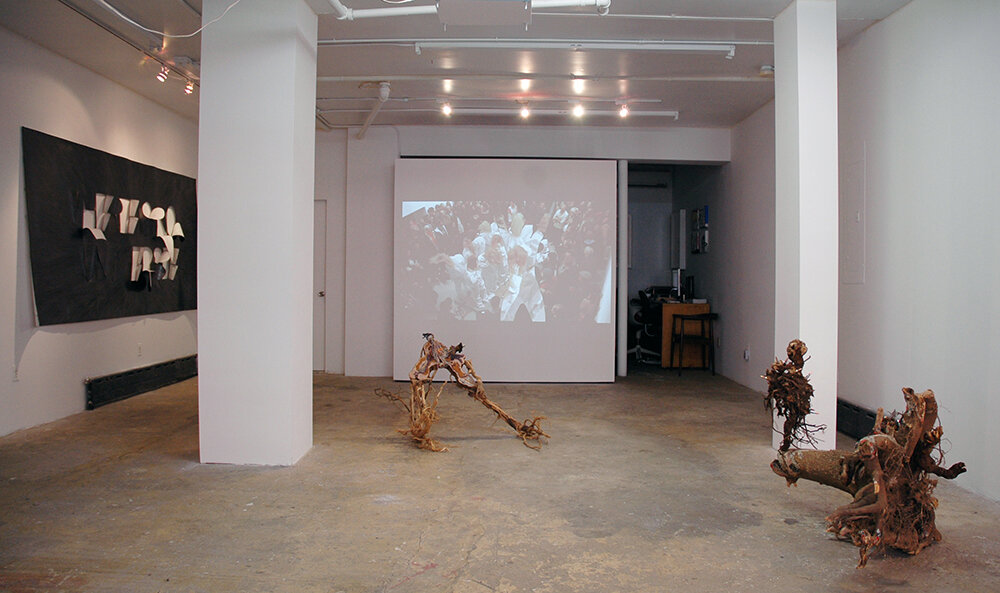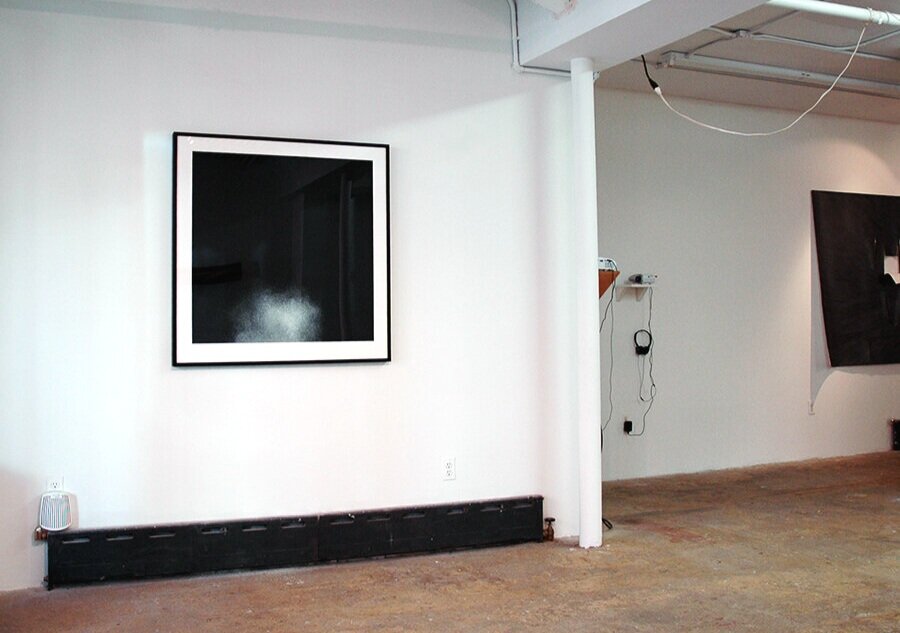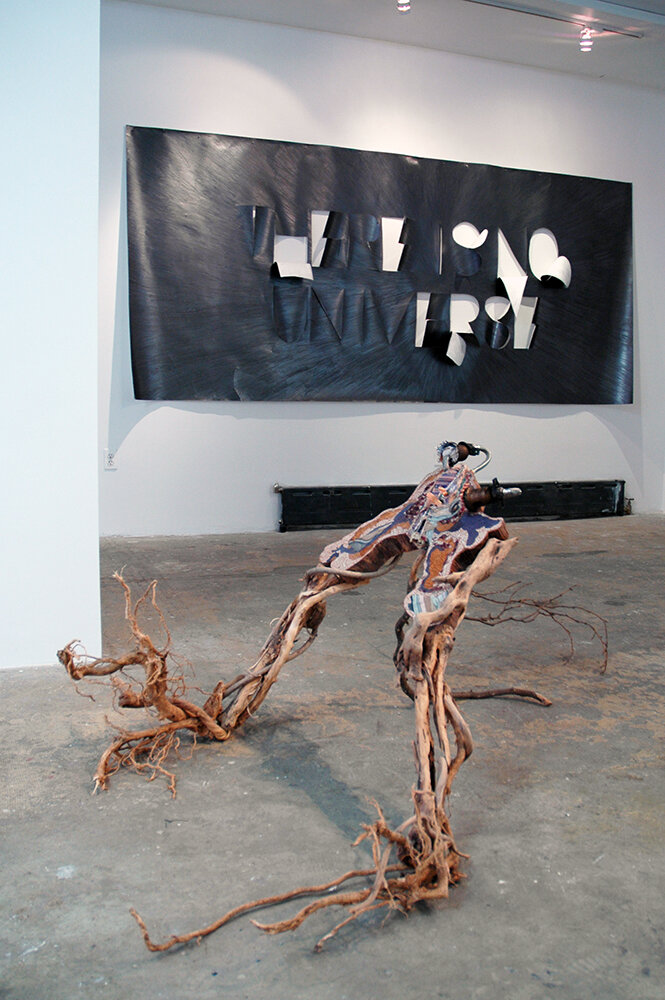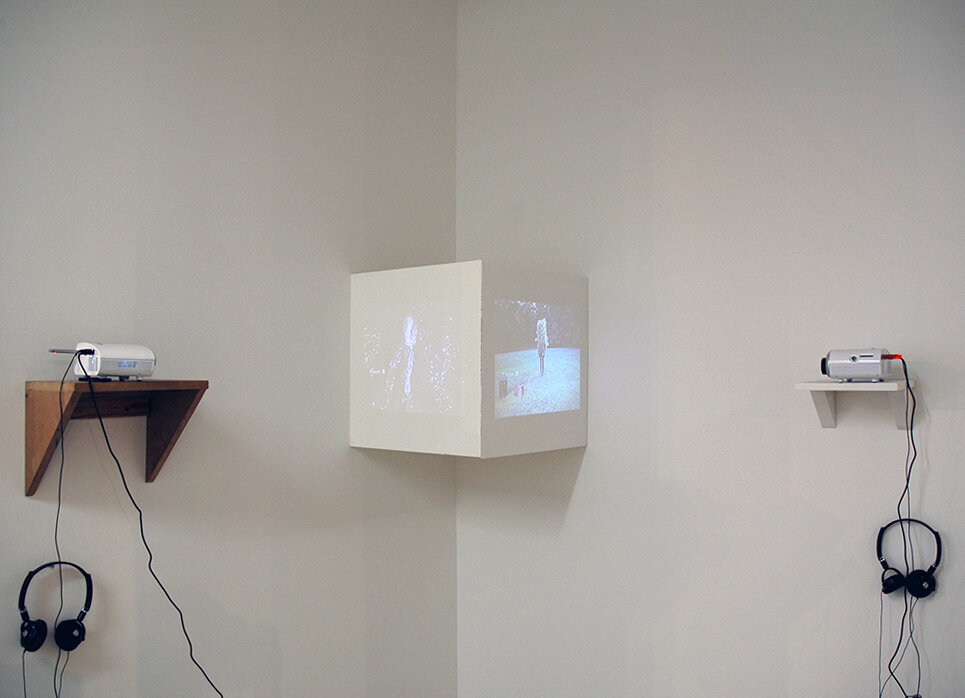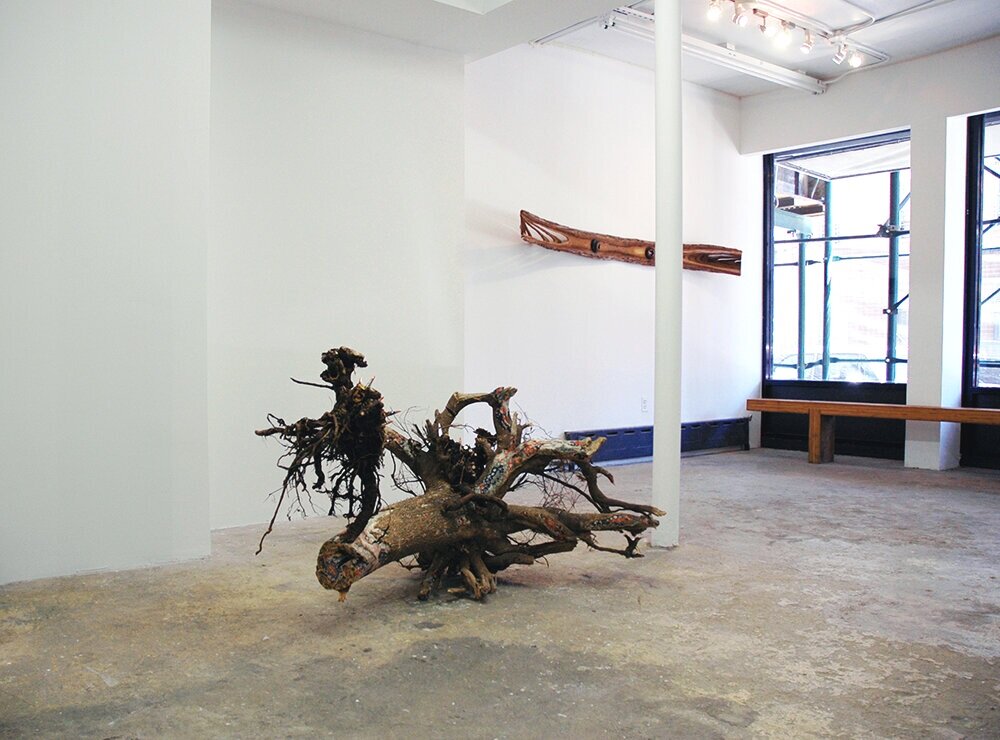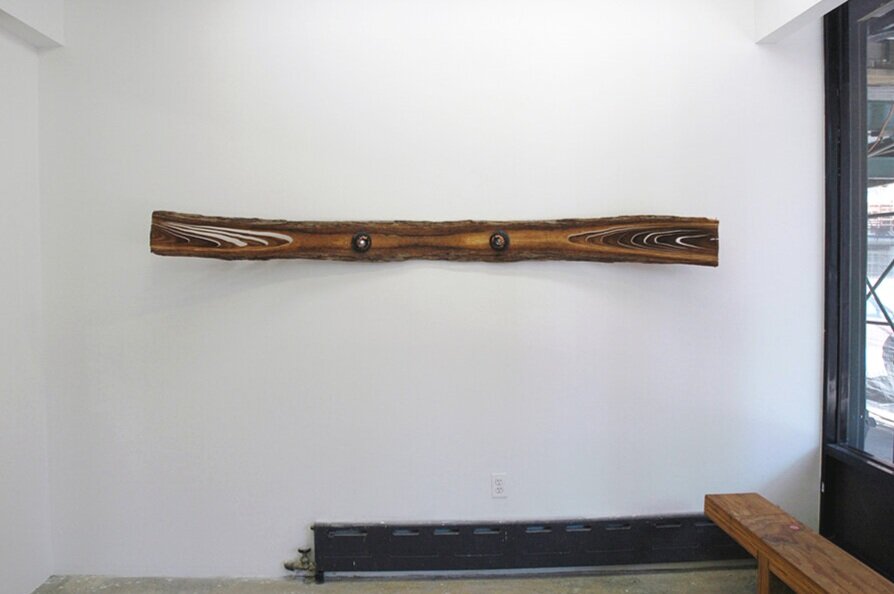We Seemed to be Unanimously Elected…
Bethany Collins, Oasa Duverney, Kenya (Robinson), Lorna Williams
September 7 – October 12, 2014
“I believe in listening to a person, the sea, the wind, the trees,
but especially to young black women whose rocky road I am still traveling.”
- Alice Walker
When Alice Walker published her book of essays entitled In Search of Our Mother’s Gardens in 1983, she sought to answer questions about where African-American women stood in the feminist conversation. Thirty years later after the identity politics of the 90s and the post-black, post-racial aughts, we find ourselves with those questions still unanswered. we seemed to be unanimously elected to pick up where white women left off is a sentiment from those early essays on Black feminism that encapsulates the parenthetical addition of non-white and working class women to the feminist movement. This exhibition presents four artists working in very different media addressing what it is to be an African-American woman in 21st century America.
Bethany Collins (b. 1984, Alabama) is an artist that deconstructs dialog by finding the strength in words and undermining its meaning. In a recent exhibition at the Studio Museum in Harlem, Collins displayed works from her White Noise series, taking the spoken words of an art critique and splaying them out onto a black canvas, allowing each letter to act as a star in an ethereal constellation. The chalk on canvas smudges engages in a visual conversation with art heavyweights such as Gary Simmons and Cy Twombly, where image and language is attempted but obscured. In this exhibition, Collins displays photographs from her Erased: I Wish I Was Black Too series. On a black background, a cloud of chalk dust is dissipating like a ghost of words spoken, a cast off of something more substantial.
Oasa Duverney (b. 1979, New York) examines recent and historical persons and events in order to understand the racist mind. In her piece Untitled (There is No Universe), 2014, Duverney expresses her frustration with the mindless killing of black teens, specifically the recent murder of Renisha McBride. This piece, while both confrontational and sympathetic, explores the seeming nonexistence of African-American women in the media as other than victims or struggling mothers. Duverney explores the individual in order to understand the whole.
Kenya (Robinson) (b. 1977, Florida) seeks to establish true expression by temporarily masking her identity. In videos like Monday Night (2013) and Like a Woman in Love (2012), she disguises her form and gender so that the focus is on the intended content, the objectification of women in sports and the overlooked art of urban erotica, and not on the ethnicity and gender of the artist. Juxtaposed is Twerk Tron (2014) where the popular dance move is shown from the point of view of the twerk. Whether she is displaying her body in eroticized gyrations or covering it from view, (Robinson) discusses the intersection of voice and content.
Lorna Williams’s (b. 1986, Louisiana) sculptures speak to storytelling and poetry. Drawing inspiration from found materials, she taps into the intrinsic meaning of each object for her own purposes. There are representational aspects to her sculptures, however her narrative is always in metaphor; she invites the viewer to feel rather than think about her work. things fall apart (2013) presents the root of a felled tree, the twisted parts replaced by the nibs of pens, thorns and knives. trap(ped) (2013) utilizes tree roots again, this time juxtaposing this natural thing with collaged drawings, zippers (zipped and unzipped), teeth and baby doll hands, which seem to reach out to you in asking. Although her work seems to be a sculptural Toni Morrison passage, her works are not from a tragic place but from one of celebration and recognition, with a touch of retaliation.

